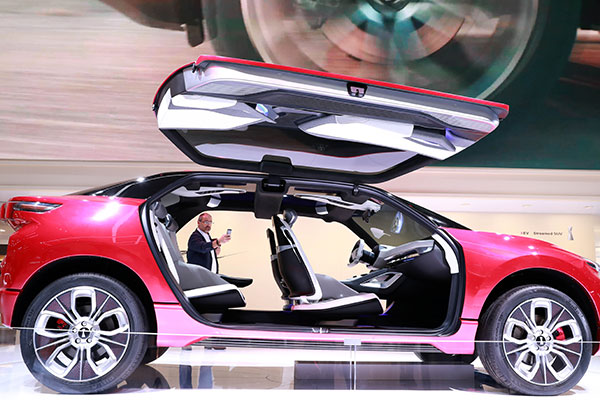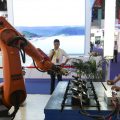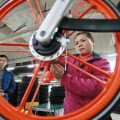
Chinese carmakers used to turn up at major shows to raise their international profiles.
But now, it seems they have more practical aims as they plan to mass produce models that will meet the strictest emission standards in the world for domestic and export markets.
At this year’s Frankfurt International Motor Show, two private Chinese auto companies presented new models geared to make a splash overseas.
Chery Automobile Co Ltd is one of the most successful manufacturers in China with 20 years experience and it now plans to wheel out a new line of passenger cars for the European market.
The EXEED TX compact SUV will be the first model to go on sale across Europe with other EXEED brands poised to follow.
“In just a few years, we intend to start selling a family of vehicles in European markets across multiple segments, with power supplied by a range of electrified powertrains,” Anning Chen, CEO of Chery, told the media in Frankfurt this week.
The company aims to sell a range of hybrid electric vehicles, plug-ins and battery e-cars. Chery is also planning to establish research and design facilities in Europe.
Rival Great Wall Motor Co Ltd is China’s largest manufacturer of SUV vehicles and rolled out six models under its high-end Wey brand in Frankfurt.
Four of them were making their global debut, including a concept model, and were branded as new-energy vehicles.
“I believe Chinese cars will perform very well in the world and not just in the domestic market,” said Wei Jianjun, chairman of Great Wall.
The company’s plan is for Wey SUV brands to enter the North American market in 2021.
Great Wall also aims to build factories abroad to manufacture models locally and is actively searching for locations.
This move into key European and North American export markets underlines the Chinese car industry’s newly found confidence in producing more sophisticated models.
Domestic automakers have also performed well under new high National VI emission standards, which are tougher than the old Euro 6 regulations.
“This time it is the real thing,” said Zhang Yu, managing director of consulting firm Automotive Foresight Co in Shanghai.
Implementation of new emissions standards in 2019 and 2020 means automakers must produce vehicles that not only satisfy Chinese guidelines, but also regulations in Europe and the United States.
Still, Zhang said it would not be easy for Chinese auto companies to build distribution networks in Europe and North America.
His view was echoed by Peter Hage, founding partner at auto consulting firm Districom Group.
“Also, different customer expectations must be met in terms of vehicle design, quality and performance, as well as overall customer experience management,” he added.


